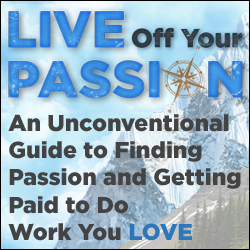Want to stay ahead of the career curve? Or do you have a high school or college student who is contemplating career choices? Here are 13 Careers for the Next Decade from Kiplingers:
Federal-government manager: Especially in homeland security, energy and the environment, health care, veterans affairs and defense. Common job titles: program analyst, program manager and director.
Higher-education administrator: Even in tough times, many people continue to pursue higher education. So manager types may find the job market better in higher education than in corporate America.
Program evaluator: Is Head Start really worth the taxpayer dollars? Is it wise to train lab technicians online? Program evaluators address such questions.
Corporate executive specializing in global business development or managing global workforces: Speaking Mandarin, Hindi, Bengali, Russian, Portuguese, Arabic or Farsi is a plus.
Cognitive-behavioral therapist: Federal law requires that mental health now be covered as fully as physical health, but many insurers will cover only cognitive-behavioral therapy because it’s both shorter and, on average, more efficacious than traditional psychotherapy.
Immigration expert: President Obama has promised amnesty or “a path to citizenship” for the U.S.’s illegal immigrants. Experts will be needed to figure out how to integrate millions of people who are typically poor, speak little English and have high health-care needs.
Researcher: Expertise in two or more of these subjects: physics, math, molecular biology, engineering and computer science are in high demand. Key specializations and examples of work in each area.
Health-information specialist: Health-care providers are switching to electronic medical records, using computerized expert systems to guide diagnoses and treatment recommendations, and collecting more data to evaluate quality of care.
Optometrist: This career offers a high patient success rate, good income, status and shorter-than-MD training: four years post-bachelors or seven years in a BS/OD program.
Genetic counselor: With personal DNA sequencing ever more informative and affordable, people face many more gene-related decisions which could also be moral decisions. Genetic counselors help people decide what to do.
Patient advocate: Help ensure the patient gets to see the right specialist, do research so the patient is better informed when talking to the doctor, educate family members on how to support the patient during a hospital stay, sort through the mountains of bills and, if necessary, negotiate fees.
Physical therapist: This career scores high on job-satisfaction surveys, thanks to one-on-one interaction that lasts longer than physicians’ average of 12 minutes per patient, tangible patient progress and reasonable work hours. Plus, as aging boomers sustain more weekend-warrior injuries and worse, the job market could strengthen, although cost-control pressures are resulting in increased use of physical-therapy assistants, who have less training.
Veterinarian: This career offers advantages over an MD career: shorter training, qualification to do a wider range of procedures, less paperwork and freedom from the uncertainties of health-care reform. Of course, your patients can’t describe what’s wrong with them.
I noticed that many of these jobs relate to some of America’s greatest challenges right now, which are likely to continue to grow, including:Â security and defense, education, immigration, and health care.
Do any of these surprise or interest you? Please share your comments below.
 With unemployment rising all across America, it seems like there are literally 500 job applicants for every half-way decent job that’s available.
With unemployment rising all across America, it seems like there are literally 500 job applicants for every half-way decent job that’s available. 
Connect With Us